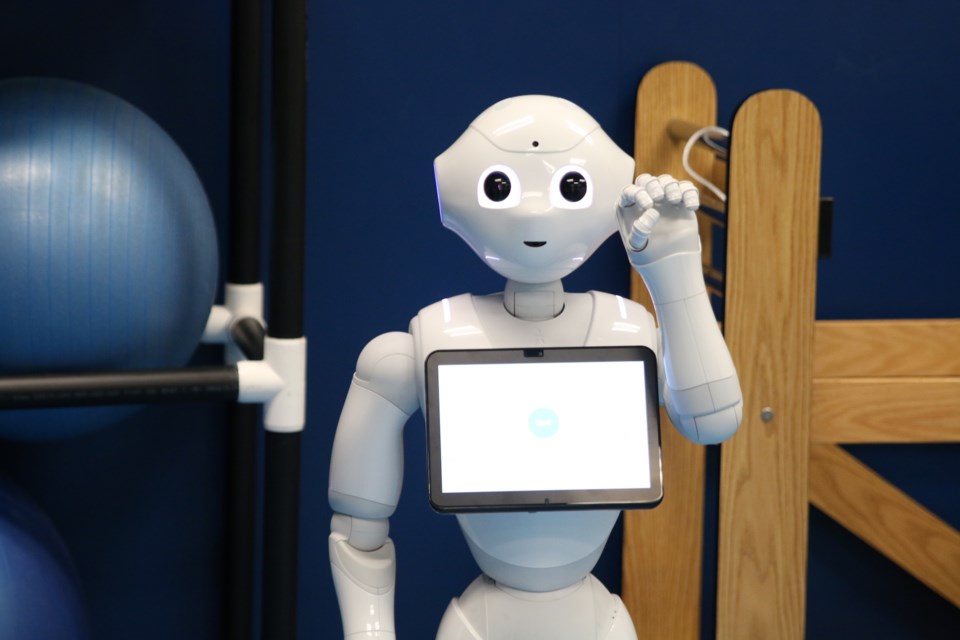THUNDER BAY - Across North America, the number of people aged 65 and older is increasing and researchers are looking at new ways to ensure proper care will be provided, and not necessarily by humans, but robots.
“Very soon every fourth person will be 65 and above, so that will mean we will not have enough younger people to care for the elderly,” said Arshia Khan, an associate professor of computer science at the University of Minnesota. “So how do we provide care? That’s how the robots will come in handy. We are not saying to replace human beings. It’s just augmenting the care.”
Khan, along with the robot Pepper, were part of a research showcase at Lakehead University on Sunday highlighting some of the work being done in kinesiology, bio-technology, and computer science.
“We are trying to demonstrate some of the research we do in relation to concussion research, what computer science does in terms of robotics, and bio-technology in relation to concussions and bio chemistry,” said Carlos Zerpa, associate professor in the School of Kinesiology at Lakehead University.
Zerpa said it’s important to showcase the research being done with not only the public, but also other researchers to allow for more collaboration.
“For example, concussions are a complex issue so today I found out that there are people in the area of chemistry doing concussion research with biomarkers,” he said. “I am doing concussion in relation to helmet protection devices. Now we can combine this information and perhaps apply for better grants and open up opportunities for students.”
The team from Minnesota was invited to demonstrate the robot, Pepper, which Zerpa said has allowed Lakehead to establish a link with their research for future opportunities.
According to Khan, Pepper has been in development for a year and a half and during the showcase she was predicting a person’s age using facial recognition.
But Pepper is meant to serve a much greater purpose. She is being programmed and designed to assist elderly people living with dementia.
“The idea is she will be a life long companion,” Khan said. “As soon as the person is diagnosed with mild cognitive impairment, we send her off with them. As the diseases progresses slowly, they start to forget their daily activities and that’s when she will learn their activities and assist them.”
Pepper will assist people living with dementia in a variety of ways, including helping with medication, monitoring vitals with sensors, and following and alerting caregivers if someone starts to wander.
Khan believes robots like Pepper will dramatically change assisted living in the future and could be the first step in robotic helpers that may one day be in everyone’s home. But it’s still a long ways off.
“I think we will be done with her programming in two years, but by the time we do the clinical trials and get FDA approval, it will be a decade,” she said.
